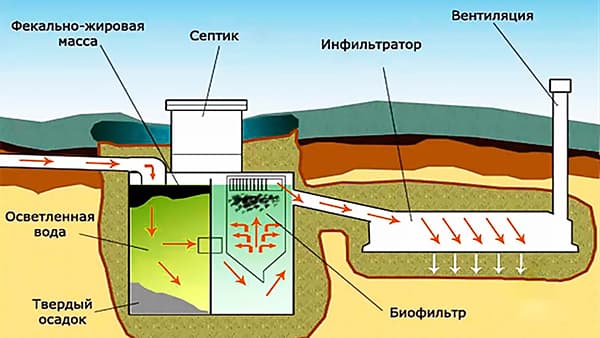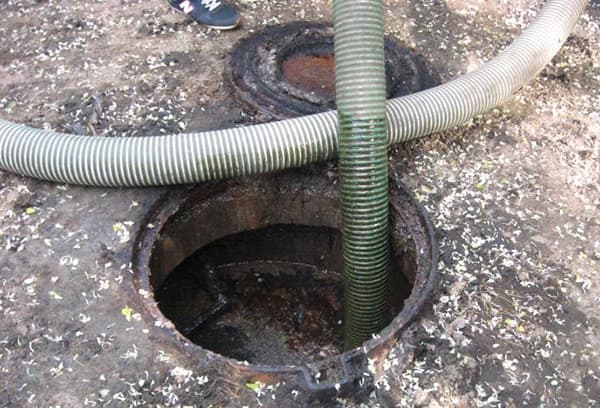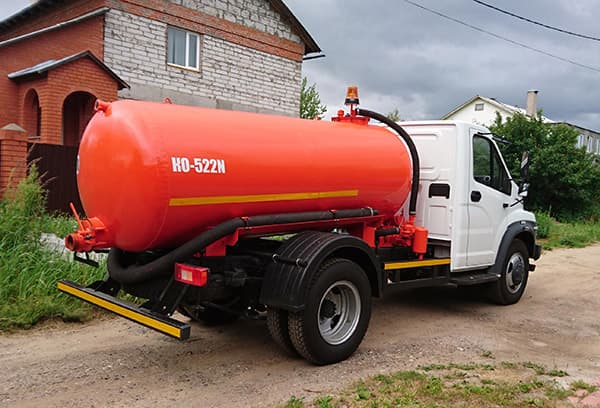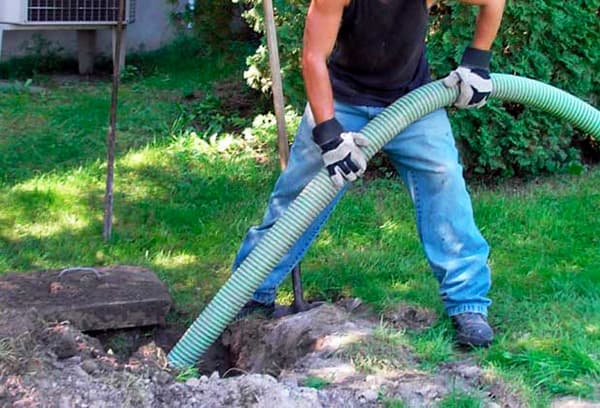How often will you have to clean the septic tank and what happens if you miss the moment?
The question of how often a septic tank needs to be pumped out occupies many owners of summer cottages and private houses. Calling a sewage disposal truck costs time and money, and a delay in pumping can lead to clogging of the storage facility, the appearance of unpleasant odors and environmental pollution. Experts recommend pumping out at least 1-2 times a year. Let's figure out what determines this period, what factors influence the frequency and quality of cleaning.

How does a septic tank work?
If it is not possible to connect the house's sewer system to the main pipe leading to the city wastewater treatment plant, the problem of storing and disposing of household waste arises. This is dirty water from the bathroom, kitchen and toilet.
Wastewater contains liquid and solid fractions. In this case, at least 70% of the volume is water. Many components of sewage provide food for microorganisms. The activity of bacteria leads to partial or complete biological decomposition of organic matter. This process is accompanied by unpleasant odors, and many bacteria and their metabolic products are dangerous to humans.
There are two ways to solve the waste problem:
- Cesspool. This is a reservoir in the ground, the walls of which are capable of allowing water to pass through. Solid components remain in the pit, forming silt deposits. They need to be pumped out every 6-12 months, otherwise the pit will overflow. A cesspool is the simplest, but not the cleanest, solution to the wastewater problem.It spreads an unpleasant odor, and the silt contained in the pit pollutes the soil.
- Septic tank. This is a complex structure of several concrete chambers in which sewage water settles and sludge gradually decomposes by bacteria. Water purified as a result of biological destruction enters the last chamber - the filter well. This chamber has a permeable bottom, and water goes into the soil without polluting it. The septic tank must be cleaned of sludge every 2–4 years.
A septic tank is a much more advanced device than a cesspool. It does not take up space on the site (the tanks are located underground), does not smell due to the sealed design, and does not contaminate the soil with foreign microflora. However, it must also be monitored and cleaned as necessary.
There are also more complex designs of septic tanks, which are full water purification stations. In them, the liquid is purified so much that it can be used for technical needs. For example, the TOPAS autonomous sewage system provides 98% wastewater treatment.
What determines the frequency of cleaning?
It is impossible to unequivocally answer the question about the timing of cleaning a septic tank. The fact is that for different models this period can differ quite significantly (from 1 year to 5 years). The mode of operation and the amount of wastewater received for processing per day also differs in different families. For example, a family of 5 people permanently living in a house will produce much more waste than a couple of retirees who visit their dacha only on weekends.
Here are the main factors influencing the frequency of septic tank pumping:
- Septic tank capacity. The larger the tank, the less often it needs to be cleaned.
- Average daily waste volume.This indicator depends on the number of people constantly using the sewer system and the frequency of its use.
- Drainage well designs. Different materials conduct water at different rates, so the rate at which purified water is removed differs between different models of treatment plants.
- Type of microorganisms used for biological destruction. A number of septic tanks are designed to use only anaerobic bacteria; in others, waste decomposition is carried out sequentially by anaerobic and aerobic cultures. The first type is cheaper, but is slower to clean and therefore requires pumping more often.
When calculating the required capacity of a septic tank, it is worth taking into account not only the needs of the people living in the house, but also the needs of possible guests. Otherwise, the treatment system may not be able to cope with the peak load.
The cleaning period for a specific model is specified in the accompanying documentation. It is rather advisory in nature, but it is not recommended to neglect it. Otherwise, silt deposits at the bottom may form a dense crust, which will significantly complicate cleaning and restarting the system.
Should I pay the sewer cleaners or pump out the sludge myself?
Even the most advanced septic tank requires cleaning over time. With proper settings, the liquid level in the tank practically does not increase, but its composition will gradually change due to the accumulation of sludge. To prevent the sludge from congealing into a dense crust over time, it is necessary to periodically pump out the sludge.
There are two ways to clean a septic tank from excess sludge:
- Call a sewage disposal truck and entrust the job to professionals.
- Arm yourself with a fecal pump, a container for transportation and solve the problem on your own.
Each option has its own advantages and disadvantages. Let's look at them in more detail to choose the optimal solution.
Inviting vacuum cleaners is simple, but expensive
Today, in most settlements there are several organizations involved in pumping and removing sewage. Having placed a call for a sewage disposal truck in such an organization, all that remains is to wait for the specialists to arrive on the appointed day and monitor their work.
This option has a whole range of advantages:
- There is no need to buy complex and expensive equipment. The savings are especially noticeable, since the transport tank and sewage pump will only be needed 1 day a year, or even less often.
- There is no need to look for a place to dispose of wastewater.
- You don't have to do dirty work.
It's comfortable!
Most organizations offer not only a one-time cleaning service for an autonomous sewer system, but also contracts for ongoing maintenance. After concluding such an agreement, sewage disposal service employees will come out to service your septic tank according to the established schedule.
The main disadvantage of turning to professional vacuum cleaners is the need to pay for their services. The cost of service depends on the distance to the company’s office and the volume of waste removed. Such costs can become a significant expense.
We clean the septic tank ourselves: we save money, waste energy and time
The procedure for pumping out a septic tank is not too complicated, but it requires some specific skills and special equipment:
- Fecal pump. You cannot use a water pump, as it will quickly become clogged with solid waste components and fail.
- Barrels for transporting sewage water.They are produced in the form of car trailers or bodies. The container must be resistant to corrosion processes and have a sealed lid. It is better if the barrel corresponds to the volume of the sewer system tank - this will allow you to pump out all the wastewater at once.
There is no oxygen in the anaerobic digestion tank. During the process of biological destruction, toxic gases accumulate, so careless actions can cause serious poisoning.
Before cleaning, you must contact a nearby waste disposal site and make arrangements to accept the wastewater. On the day appointed for the work, sludge and water are pumped out of the containers. In this case, it is necessary to leave about a fifth of the sludge as a starter - it contains a colony of bacteria that carry out biological destruction.
After pumping, large solid waste (balls of hair, fragments of bones, rags, etc.) is removed from the tank. Then you need to clean the filters and then fill the tanks again with clean water. The process is quite labor-intensive and dirty, so it is worth undertaking it only if it is impossible to call a vacuum cleaner.
Timely pumping of the septic tank is a necessary condition for the uninterrupted operation of the sewage system in the house. Don't forget to keep this event on schedule!




Thanks to the author, everything was written clearly.